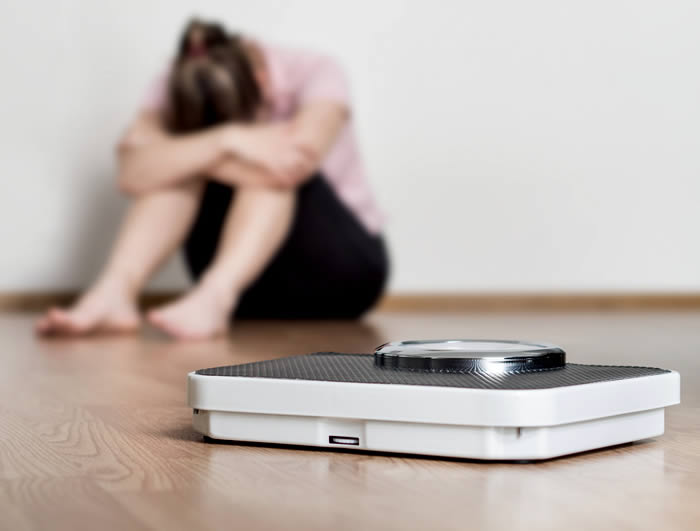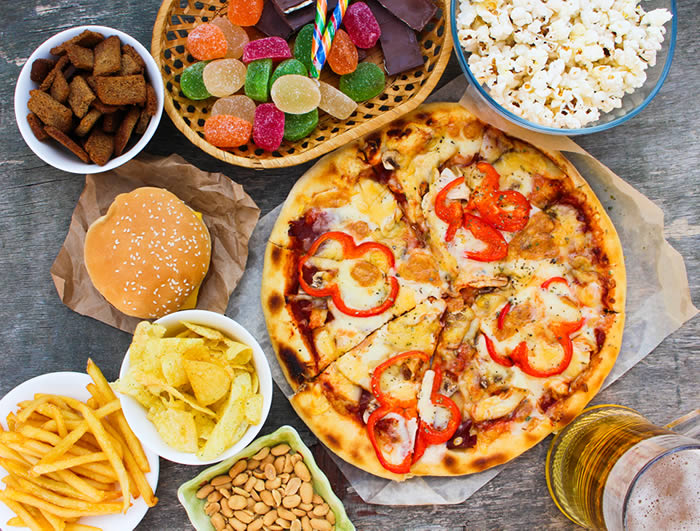
A high amount of body fat can lead to weight-related conditions like high blood pressure, type 2 diabetes, gall bladder disease and stroke.
Overeating and weight gain are sometimes chalked up to laziness or lack of willpower. But food addiction is real, and for some people, food is like a drug, and food addiction can be as debilitating as any other addiction.
For some individuals, certain foods like fat, sugar and carbs can trigger the same pleasure centers of the brain that are triggered by addictive drugs like cocaine and heroin. As with other addictions, shame and guilt, low self-esteem, depression and anxiety compound the addiction.
Food addiction is tough. While the removal of such substances as alcohol, cigarettes or drugs can help control the addiction to those substances; you need food in order to survive. Food addiction can also be further compounded by weight gain, shame and poor self-esteem.
Compulsion is often born of an inner pain that we try to numb with food. The more we hide our problems, the longer they will run our lives. You are not alone. Reach out to others dealing with the same issues and find out how treatment can help.
Learn more at the Food Addiction Institute

Visit your Primary Care Provider
Canyonlands provides integrated healthcare. The importance of this kind of approach is that physical symptoms and mental symptoms can be interrelated. It is important that you have a checkup with your Primary Care provider to see if other factors can be leading to your weight problems; such as food allergies, an underactive thyroid or low blood sugar (hypoglycaemia).
Getting Off the Addiction Roller-Coaster
You overeat because you are depressed, and you are depressed because you overeat.
One way to begin dealing with food addiction is to begin talking about it with a mental health professional. Behavioral Health professionals can help you begin to identify the triggers behind your addiction and alternative ways to deal with family, relationships, work-related stress and habits. A mental health professional can provide the ongoing support that you need to identify painful thoughts and behavioral changes.
It is important to visit your Primary Care provider to check your overall health and blood chemistry. There could be physiological factors that are contributing to such things as mood disorders and weight gain.
REQUEST AN APPOINTMENTPregnancy and Food Addiction
Women know they shouldn’t smoke, drink alcohol, or do drugs while they’re pregnant. But a new study on rats suggests that even females who eat junk food during pregnancy may be setting up their children for a lifetime of addiction.
For the study, the team fed some of the rats a diet high in fat and sugar — foods like sugary cereal, meat patties, potato chips and peanut butter. Then they looked at these rats’ offspring after they were weaned, and found that the offspring of junk food-fed mothers preferred more high-fat foods compared to a control group fed a diet low in fat and sugar. They also found that the gene expression in the reward pathway of these rats’ brains was altered — they had an increased predisposition to junk food addiction later in life.
Some of the Signs of Food Addiction
Do you:
- Eat in secret, trying to avoid letting anyone see you put food in your mouth?
- Avoid social interaction to spend time eating certain foods?
- Continue to eat certain foods even if no longer hungry?
- Steal other people’s food?
- Eat fast and furiously, never stopping to really taste what you’re eating?
- Find yourself more interested in what food is served at social gatherings than looking forward to being with the people attending?






